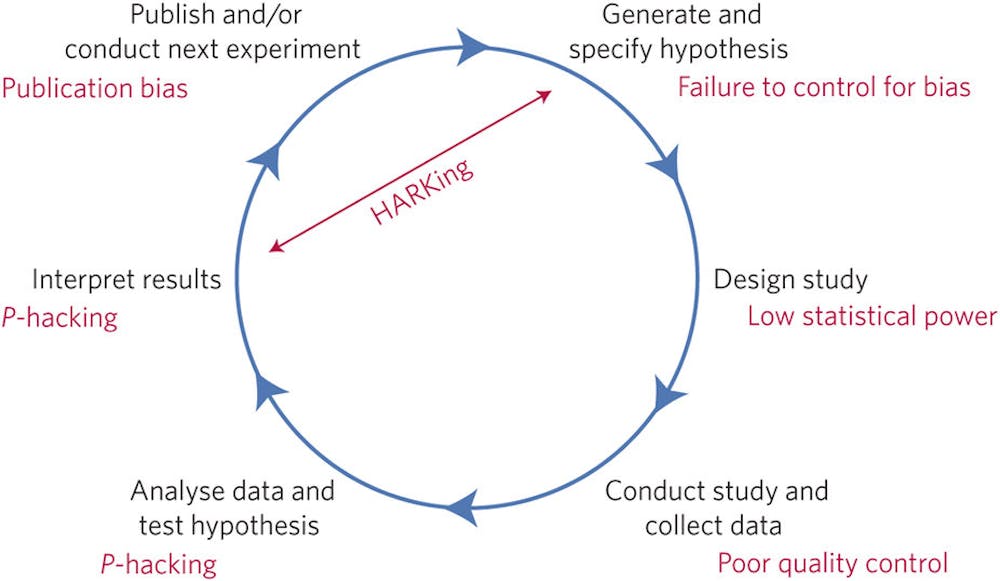ReproducibiliTea
Uni Bern

Reproduci-What?
“We are a grassroots journal club initiative that helps researchers create local Open Science journal clubs at their universities to discuss diverse issues, papers and ideas about improving science, reproducibility and the Open Science movement.”
- Started in early 2018 at the University of Oxford
- 126 institutions in 25 different countries
ReproducibiliTea UniBe

- every 2 months
- short intro (max 5 Minutes by volunteer)
- ~40 minutes discussion
- voting on next paper
Code of conduct
- be kind
- everybody should be listened to
- we are here to learn
Quick Intro round
- what is your first name (we don’t do rank!)
- what is your field of research/study
- favorite band/composer
Intro: Nosek et al. (2018)
Main points
- postdiction v. prediction
- reward circle in science (novelty over incremental increase in knowledge)
- where does pre-reg come into this?
Main points

Munafo et al., 2017, https://doi.org/10.1038/s41562-016-0021
Challenges (my favorites)
- Changes to procedure
- Discovering assumption violations
- Longitudinal studies
- Competing predictions (adverserial conversations)
Learn to pre-reg your work
- Online courses (https://www.coursera.org/specializations/statistics, https://www.coursera.org/learn/statistical-inferences), instructional guides (help.osf.io/m/registrations/l/546603-enter-the-preregistration-challenge)
- Criteria established for preregistration badge credentials (https://osf.io/6q7nm/)
- Collections of preregistration templates (https://osf.io/zab38/wiki/home/).
Says all for me:
Sometimes researchers use existing observations of nature to generate ideas about how the world works. This is called post-diction. Other times, researchers have an idea about how the world works and make new observations to test whether that idea is a reasonable explanation. This is called prediction. To make confident inferences, it is important to know which is which. Preregistration solves this challenge by requiring researchers to state how they will analyze the data before they observe it, allowing them to confront a prediction with the possibility of being wrong.